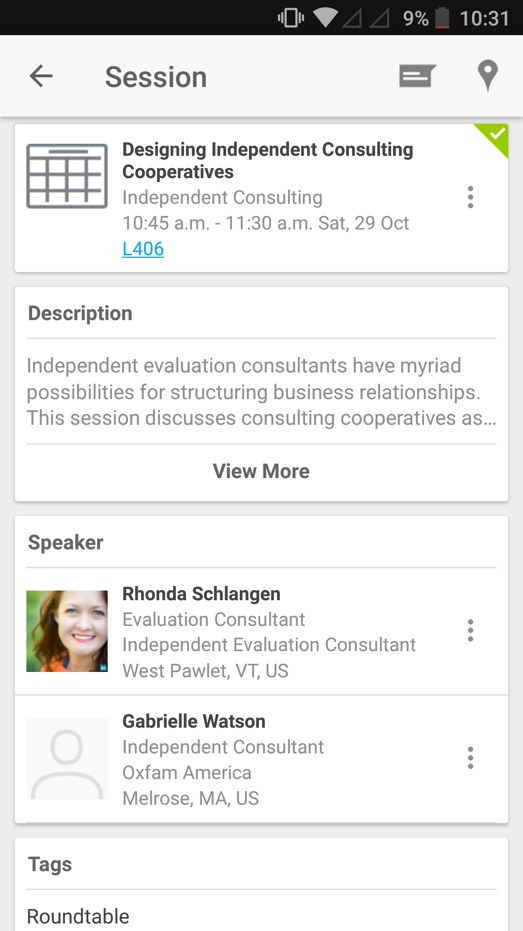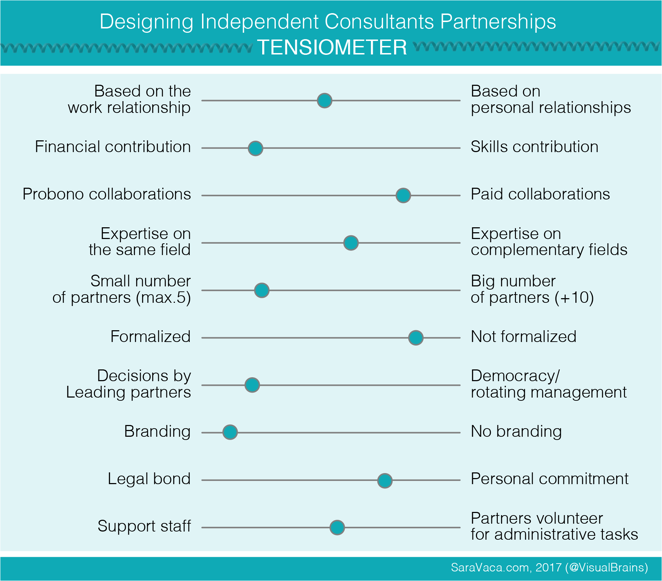Hi, I’m Sara Vaca, independent consultant (www.SaraVaca.com), AEA365 Outreach Coordinator and Creative Advisor (happy to be back!), and it’s been 4 years and a half since I started my evaluation practice. In that time, I have been involved (to different extent) in about five different partnerships. Belonging or working with a group of consultants (in the form of a partnership or a cooperative) is a great way of collaborating and joining forces with pairs for learning, having access to bigger contracts and sharing experiences – and as a very social individual, I personally love it.
Cool Trick: I am learning as I go but an Evaluation 2016 session on “Designing Independent Consulting Cooperatives” helped me reflect about the dynamics to navigate and tensions to collectively balance when designing and working as a group.
Hot Tip: I realized it has many similarities with dating!!! LOL
First: sometimes it comes organically after a longer “friendship” relationship; others it is love at first sight (exciting!); on occasion it gives signs of not being a good idea, but you get into it anyway.
Second: you have to get involved and give of yourself in order to make it work. If you have reservations, or you are not convinced to contribute, you will probably never fully commit.
Third: when it works, you feel like you’re in heaven. Life is good, you still have your independence and yet, you belong to something bigger that embraces you and that improves your (professional) life.
Fourth: it is very hard to pretend you are fine if you have minor or major disagreements with your partners. You can try, but eventually resolution through sincere and respectful communication has to happen in order to fix your unsettlement. Otherwise, you will end up breaking up.
Fifth: if eventually it ends up not working out, it slightly breaks your heart and you feel sad.
Rad Resource: I lately use tensiometers more and more (just to visualize the parameters in “tension” that need to be balanced), and during that Evaluation 2016 roundtable organized by Rhonda and Gabrielle, I noted down some of the parameters partners have to agree on in order to be on the same page about the partnership or cooperative they want to build/belong to.
 Some of them were: whether the relationship between partners is merely professional or personal or both, whether they agree to pay or not contributions, whether they collaborate also in pro bono projects or just contracts, whether they are complementary or colleagues in the same field, the size of the group, how formal is the group and their commitment to it, if all members have equal rights and duties or there are some leaders, and whether they have staff paid by them or not.
Some of them were: whether the relationship between partners is merely professional or personal or both, whether they agree to pay or not contributions, whether they collaborate also in pro bono projects or just contracts, whether they are complementary or colleagues in the same field, the size of the group, how formal is the group and their commitment to it, if all members have equal rights and duties or there are some leaders, and whether they have staff paid by them or not.
Let us know if you have other comments around how to partner to work as a group of independent consultants. Thanks!
Do you have questions, concerns, kudos, or content to extend this aea365 contribution? Please add them in the comments section for this post on the aea365 webpage so that we may enrich our community of practice. Would you like to submit an aea365 Tip? Please send a note of interest to aea365@eval.org. aea365 is sponsored by the American Evaluation Association and provides a Tip-a-Day by and for evaluators.

Kia ora Sara, love this! I’d like to offer a 6th one: you can have a pre-nup/MOU if you like, but the key to success is not the contract – it’s the ongoing commitment to make it work, mutual respect and willingness to have open & robust conversations.